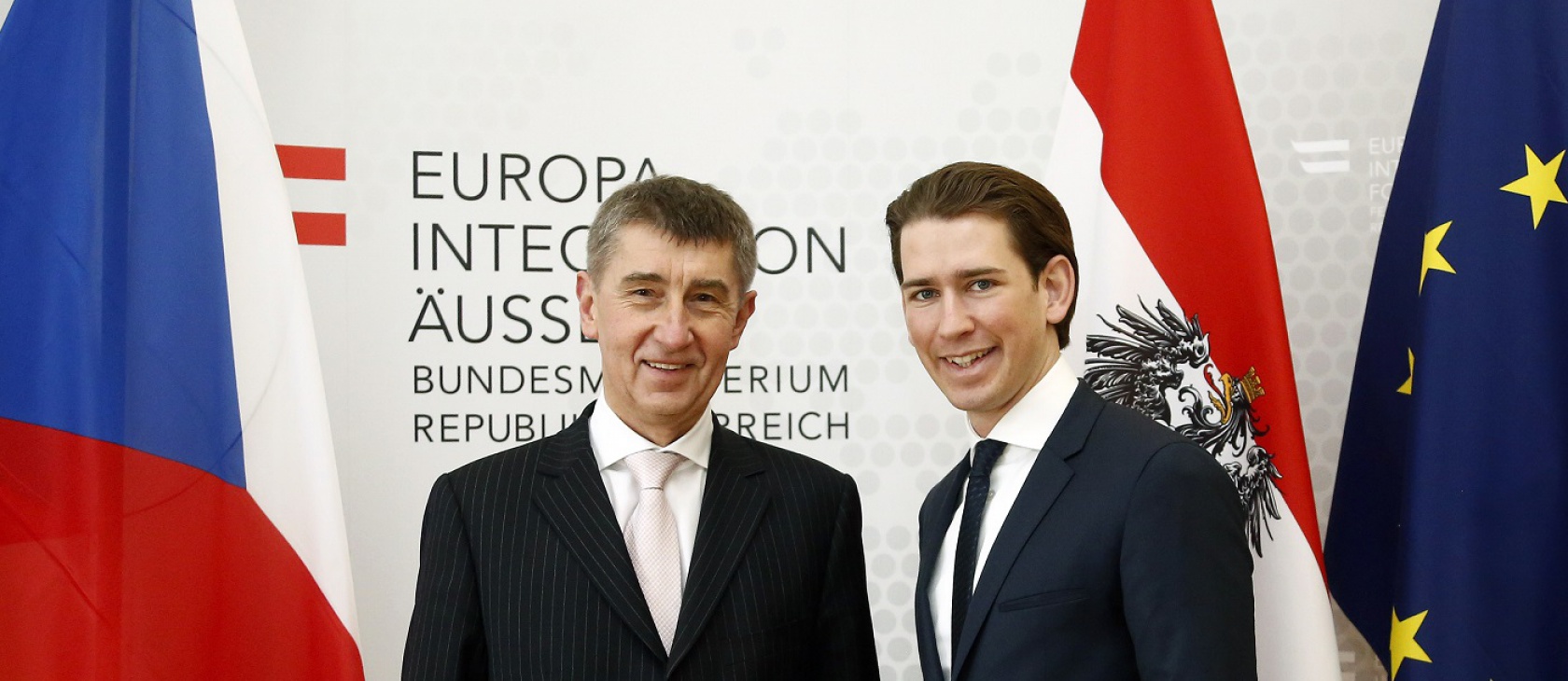More than a week after the Czech Republic’s elections, the nation’s political future remains murky. The election of charismatic billionaire Andrej Babiš is another example of populism’s success in Europe and the weakening of traditional political ideologies. However, it is unclear that he will be able to create a government coalition in the new parliament, which will contain the largest number of parties in its history.
How the Czech political system works
The Czech Republic is a parliamentary democracy, in which the legislative branch is theoretically (and unlike, e.g., the UK, in fact) the most powerful of the three branches of government. The Czech parliament is bicameral but the lower chamber (the Chamber of Deputies) is much more powerful that the upper chamber (the Senate). In most cases, Chamber can pass laws against the will of the Senate with an absolute majority. The exception are changes to the constitution, where the agreement of three-fifths of both chambers is needed. The Senate is meant to function more a safety mechanism, but it is so unpopular that the majority would like to abolish it, as would some politicians. The rest of this article will deal with the Chamber, unless specified otherwise.
The Chamber of Deputies is elected by party list proportional representation; that is to say, voters vote for parties, not individual candidates. The system tends to favour bigger parties due to how seats are distributed amongst the parties. To be eligible for parliamentary representation, a party must gain at least five percent of the vote. The following table contains the results of the 2017 election and a comparison with the previous election:
| Party | ANO | ODS | Pirates | SPD | KSČM | ČSSD | KDU | TOP 09 | STAN |
| Votes | 29.64% | 11.25% | 10.79% | 10.64% | 7.76% | 7.27% | 5.8% | 5.31% | 5.18% |
| Change | +11% | +3.6% | New | New | -7.2% | -13.1% | -1% | -6.7% | New |
| Seats | 78 | 25 | 22 | 22 | 15 | 15 | 10 | 7 | 6 |
| Change | +31 | +9 | New | New | -18 | -35 | -4 | -19 | New |
ANO was the clear winner of the election, with the old left-wing parties (KSČM and ČSSD) the clear losers. Overall, the election was a rejection of the traditional politics and also the old socioeconomic Right/Left cleavage. Of the four strongest parties, all parties but ODS refuse to categorize themselves as either left- or right-wing. This election also triggered a notable “bloodbath” within the political parties. So far, five leaders have either resigned or said they will step down at the next party conference.
Party overview
The parties winning seats in the Chamber of Deputies include:
ANO 2011 (Yes 2011)
Unlike other protest parties, ANO deftly combines hope and fear in its messaging. Founded in 2011, ANO is an unlikely anti-establishment party at first glance. It was founded by Andrej Babiš, a billionaire who owns the conglomerate Agrofert, which operates in agriculture, construction, logistics, and other fields. In keeping with the protest theme, ANO calls itself not formally a political party but a political movement, a distinction that resonates with many voters. The driving force of ANO is the refusal of political status quo, the way things have been done in Czech politics since the fall of communism.
Citizens did not vote for ANO because of its program, which is full of populist platitudes about how things will get better and how the traditional parties are corrupt, but because they trust Babiš. Babiš had the best political marketing in the last election, which consisted of repeating a few simple points, which were essentially “everybody steals except me”; “I built a large company, so I can govern well”; “I am not a politician, and I hate being in politics”; and “government should be run like a company.” Babiš has been involved in several scandals, but he has managed to convince many of his voters that those scandals are fake – or that even if they are not, other politicians are much worse.
ODS (Civic Democratic Party)
ODS is a traditional conservative right-wing party, which has a long history of electoral strength. A series of scandals has almost destroyed the party, but the worst seems to be behind it now. The party is Eurosceptic, but does not support leaving the EU.
CPS (Czech Pirate Party)
The biggest surprise of this election, the Czech Pirate Party’s program is similar to other “pirate” parties in Europe: modernisation of bureaucracy, legalisation of marijuana, and support for popular referenda. It is a socially liberal party, with unclear economic policy. It is pro-EU and wants to adopt the Euro in the long run. The party has an intellectually diverse membership, and internal strife might become a problem in the future.
SPD (Freedom and Direct Democracy)
Another one-man party, SPD is the newest political project of Tomio Okamura – who is, rather oddly for a Czech nationalist, half-Japanese. Okamura first entered politics in 2013 with another party called the Dawn of Direct Democracy. Personal disagreements had him expelled from that party and, thus, he founded SPD. Both parties have the same program.
Okamura’s key platform includes: no large-scale immigration to the Czech Republic, a move to direct democracy, and instituting the possibility for voters to recall elected politicians from office. Among other things, the party demands a referendum on leaving the EU. Of late, the anti-immigrant theme has been most useful for him. There have been several anti-immigration parties running in the elections, but nationalist voters seem to overwhelmingly vote for Okamura. Unlike ANO, its messaging is almost entirely based on fear.
KSČM (Communist Party of Bohemia and Moravia)
The Communist Party is a good example of a protest, anti-establishment party that is not at all populist. The party has had the same program since the Velvet Revolution: it is a party for those who do not like the political developments of the post-communist era. Economically it is a far-Left party; socially it is conservative; and in foreign policy, it wants to leave NATO and develop closer ties to Russia. It is primarily a party of the old, and the arrival of new protest parties has caught it flat footed as, for the first time, it faces serious challenge in its niche.
ČSSD (Czech Social Democratic Party)
A traditional left-wing party which has fallen on hard times, as have other social democratic parties in Europe. Its combination of left wing economics and “progressive” social policies have not found many interested voters. Its stance in favour of accepting the Euro has not helped, either.
KDU-ČSL (Christian Democratic Union-Czech Peoples Party)
A traditional, small centrist party, KDU-ČSL is one of the natural parties of government – willing to find common ground with almost anyone. Its centrist policies are sometimes influenced by religion – its anti-abortion stance, for example – but it is a very pragmatic party. KDU is not particularly popular, both for its perceived clericalism and its ... flexibility … in order to attain government power.
TOP 09
Founded by a group of right-wing politicians from KDU, this party was billed as party for right-wing, euro-optimist voters. TOP 09 (which is its full name, not an abbreviation) has been more dependent on the charisma of its leaders that the traditional parties, but less than the protest parties. In this year’s election, TOP 09 has run on a strong anti-Babiš platform combined with movement to the political centre, akin to CDU in Germany. Yet its time seems to be running out. The party will likely have to join with another party or face its demise.
STAN (Mayors and Independents)
Formerly a loose coalition of regional political parties for local elections, STAN originally meant to run in an electoral coalition with KDU but, after that fell through, it decided to run on its own. It a centrist, perhaps center-Right, party appealing mostly on the good reputation is has built in various localities.
Coalition building
A government needs a majority to get anything done. But finding a majority willing to govern has proven impossible so far. All parties with the exception of SPD have so far refused to enter government with ANO, and ANO has refused to govern with SPD. As a result, Andrej Babiš has proposed a minority government with some ministers being “non-partisan experts.” This proposal has been refused by other parties. (The Communists alone have said they may “tolerate” such an arrangement.) At the time of this writing, it is still unclear what the future government of the Czech Republic is going to look like.




